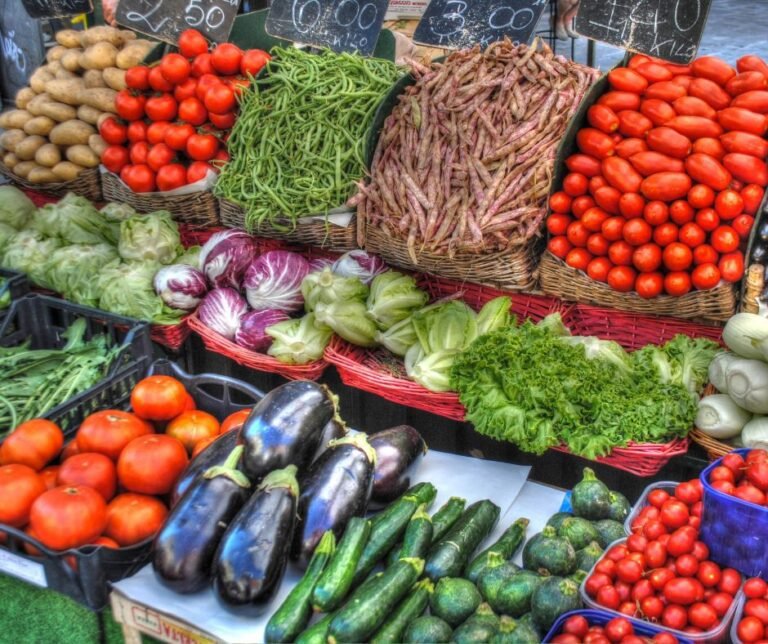Successful Fundraising Ideas for Groups and Clubs Candle Making Workshop...
Read MoreSuccessful Fundraising Ideas for Groups and Clubs

Farmer’s Market Fundraiser Idea
How to organize a successful farmer’s market fundraiser
Everyone loves a farmer’s market, so why not take the idea and turn it into a fundraising opportunity? There are a number of ways to raise funds with a farmer’s market. You can charge vendors for space, you can ask that vendors give you a percentage of their sales as a donation to your group or club, or you can charge a small entrance fee to people who wish to attend. Or, you can do any combination of the above.
Reach out to local farmers, growers, artisans, food producers, and other vendors who align with the mission and theme of your farmer’s market. Consider diversity in products to attract a wide range of attendees. Communicate any rules, regulations, or guidelines to vendors regarding setup, product display, pricing, and sales transactions. Ensure that vendors comply with food safety and hygiene standards if they are selling perishable goods.

Farmer’s Market Vendors
Here are some ideas for the types of vendors you’ll want to seek out for your farmer’s market fundraiser. The more you can get, the more fun it will be for attendees and the more revenue you’ll generate!
- Handcrafted bread, pastries, cakes, cookies, pies, and other baked treats made with locally sourced ingredients, often featuring unique flavors and recipes.
- Homemade jams, jellies, chutneys, sauces, relishes, pickles, and fermented foods using locally grown fruits, vegetables, and herbs.
- Pure, raw honey and maple syrup produced by local beekeepers and maple syrup producers, often available in a variety of flavors and grades.
- Fresh and dried herbs, spices, and seasoning blends grown by local farmers, offering superior flavor and aroma compared to mass-produced alternatives.
- Fresh-cut flowers, potted plants, herbs, succulents, and garden seedlings cultivated by local growers, perfect for adding beauty and greenery to homes and gardens.
- Handcrafted goods such as handmade soaps, candles, pottery, jewelry, textiles, woodworking, art, and other artisanal crafts made by local artisans and makers.
- Specialty and gourmet foods such as olive oil, vinegar, pasta, granola, nut butter, chocolate, spices, teas, and coffee, often sourced from small-scale producers who prioritize quality and flavor.
- Ready-to-eat meals, snacks, and beverages prepared on-site using fresh, locally sourced ingredients, including sandwiches, salads, soups, juices, smoothies, and ethnic cuisines.
- Certified organic fruits, vegetables, meats, and other products grown or produced without synthetic pesticides, fertilizers, or genetically modified organisms (GMOs), as well as sustainably sourced and eco-friendly goods.
Be sure to choose a location with high foot traffic and ample space for vendors to set up their stalls. Consider local parks, parking lots, community centers, vacant lots, or even school grounds. Choose a venue that is easily accessible, has ample parking or public transportation options, and provides enough space for vendors to set up their stalls.
Check with your local government or municipality to obtain any necessary permits or licenses for hosting a farmer’s market. You will need permission from the property owner if you’re using private land.
Organizing your farmer’s market fundraiser
Designate spaces for each vendor and plan the layout of the market to ensure easy navigation for attendees. Consider factors like foot traffic flow, accessibility, and amenities such as restrooms and seating areas.
Arrange for essential infrastructure such as tables, tents, chairs, signage, trash bins, and recycling stations. Provide access to electricity and water for vendors who may need it.
Decorate the venue with colorful banners, bunting, and signage. Consider providing seating areas or picnic tables for attendees.
Coordinate logistics such as vendor load-in and load-out times, parking arrangements, security, waste management, and cleanup. Have a plan in place for handling emergencies or unforeseen circumstances.
Emphasize sustainability by providing recycling bins, encouraging reusable shopping bags, and minimizing single-use plastics at the event.
Enhance the atmosphere with live music, cooking demonstrations, children’s activities, or workshops related to farming, gardening, or sustainability.
Solicit donations from local businesses or vendors for items to be raffled or auctioned off during the event. This can add excitement and help raise additional funds.
Here Are Some More Fundraiser Ideas to Explore!
Incentivized Giving Fundraiser Idea – Give and Get
Successful Fundraising Ideas for Groups and Clubs Incentivized Giving Fundraiser...
Read MoreYoga Boot Camp and Workshop Fundraiser
Successful Fundraising Ideas for Groups and Clubs Yoga Boot Camp...
Read MoreFood Truck Fundraiser Idea
Successful Fundraising Ideas for Groups and Clubs Food Truck Fundraiser...
Read MoreCommunity Garden Fundraiser Idea
Successful Fundraising Ideas for Groups and Clubs Community Garden Fundraiser...
Read MoreArt Exhibit and Auction Fundraiser Idea
Successful Fundraising Ideas for Groups and Clubs Art Exhibit and...
Read MoreBalloon Delivery Service Fundraiser Idea
Successful Fundraising Ideas for Groups and Clubs Balloon Delivery Service...
Read MoreLight Up the Night Fundraiser Idea
Successful Fundraising Ideas for Groups and Clubs Light Up the...
Read More







